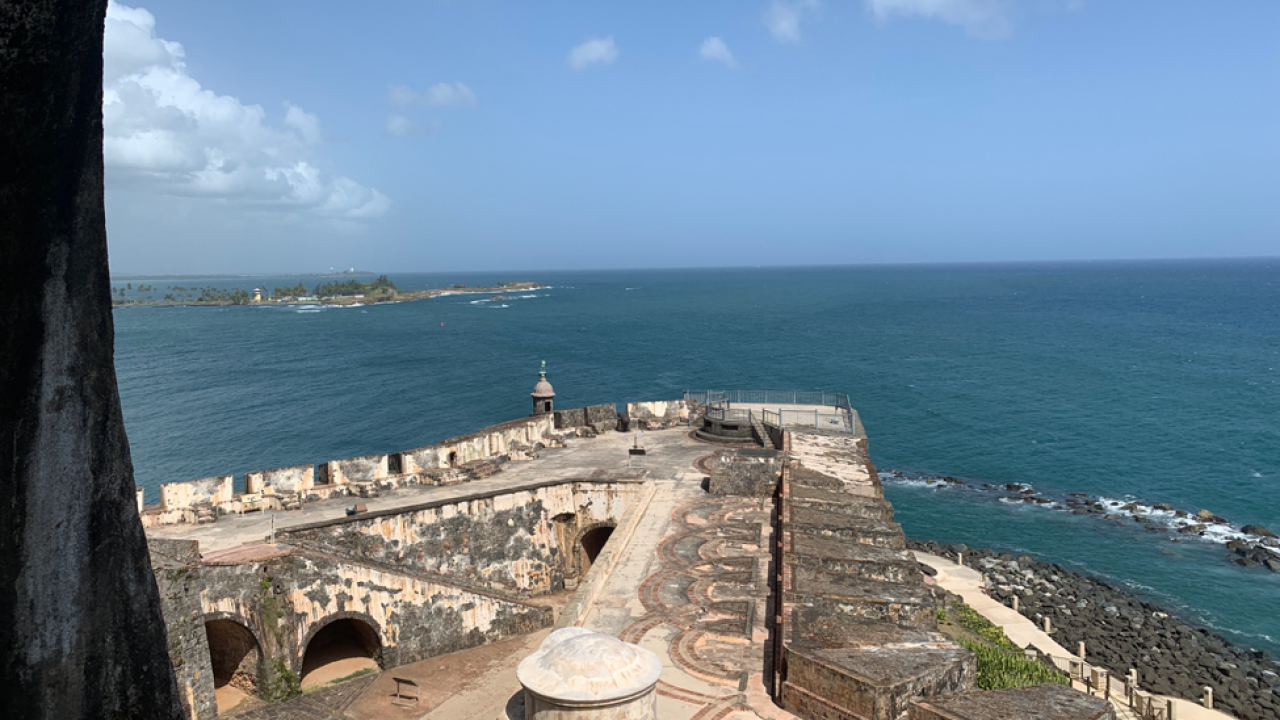
Ana Zepeda travels to Puerto Rico
I had the opportunity to visit San Juan, Puerto Rico for 4 weeks this summer with support from the Hemispheric Institute of the Americas at UC Davis, Henry A. Jastro Research Fellowship, and my advisor Amanda Crump. The purpose of my trip was to understand the impact that Hurricane Maria had on urban agriculture. I did this by interviewing women who are involved in the urban agriculture sector in San Juan, Puerto Rico.

The world is becoming increasingly urbanized and it is important that international development projects include cities. Urban agriculture is a common practice throughout many cities. We know that urban agriculture can be used to mitigate the symptoms of poverty, it creates job, and increases access to healthy and fresh food for people who otherwise may not have access to it. Women are the ones that are primarily taking part in this activity, but there isn’t much research as to why and what their experiences are. Puerto Rico is an urbanized island that has a small agricultural sector. Puerto Rico imports 85 percent of the food citizens consume. After Hurricane Maria, the agricultural sector was destroyed and people became aware of how vulnerable they are. There is a lot of support throughout the island to increase agricultural production within the island and for Puerto Ricans to have more food sovereignty. Another aspect of my project is to understand the ways in which Hurricane Maria affected the urban farms and the women involved.

During my time in Puerto Rico, I interviewed 9 different women that are involved in urban agriculture in many ways: volunteers, directors, project managers, etc. The interviews were very insightful and I learned a lot from the people I interviewed. Overall I feel that I obtained a deeper understanding about urban agriculture and the women involved. I learned a lot about how much these spaces benefit communities and how important they are. I also learned about some of the difficult parts of urban agriculture, such as having to rebuild after Hurricane Maria. We also discussed how they were or were not preparing these urban agriculture spaces for future hurricanes. Overall there are many similar themes that were reiterated throughout my interviews in addition to distinctive views by some of the women.

Another part of my research included visiting the various farmers markets in the San Juan metro area. During my time there I visited three: El Mercado Organico, El Mercado Agricola Natural Viejo San Juan, and La Plaza del Mercado de Santurce. It was by visiting these markets that I got a greater understanding of the local food system and locally grown products.
This research project will result in my graduate thesis for my masters in International Agricultural Development. I am incredibly thankful to have had the opportunity to go to Puerto Rico and conduct my research. I am also grateful to have had the opportunity to meet so many wonderful and kind women who agreed to be a part of my project.
